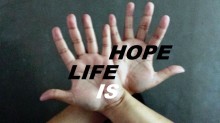 This is the first of two blog posts on the culture of addiction that I first uploaded to the website back in 2013. They are strongly based on the seminal writings of William (Bill) White, in particular from his stimulating book Pathways from the Culture of Addiction to the Culture of Recovery. In this book, Bill provides key insights into how we can help people move cultures—essential in their journey along the path to recovery.
This is the first of two blog posts on the culture of addiction that I first uploaded to the website back in 2013. They are strongly based on the seminal writings of William (Bill) White, in particular from his stimulating book Pathways from the Culture of Addiction to the Culture of Recovery. In this book, Bill provides key insights into how we can help people move cultures—essential in their journey along the path to recovery.
‘Culture’ generally refers to patterns of human activity and the symbolic structures that give such activities significance and importance. Wikipedia
Drug users often seek out and build relationships with other people whose drug use is similar to their own. They become part of small groups within which they can nurture the rituals of drug use. These groups interact with other drug-using groups, ultimately forming a broader network of users who share common goals and attributes. These social networks constitute a fully organised culture, one that has an existence and power that transcends individual membership.
In his book, Bill White emphasises the importance of understanding the culture of addiction. He emphasises that many addicts find it easier to break their physiological relationship with the drug than to break their relationship with the culture in which they use the drug. Clearly, one needs to understand how to move someone from the culture of addiction to the culture of recovery.

 My apologies for not posting for a while on the website, but I have been busy writing a new book… and also feeling a little burnt out. Anyway, I want to mention
My apologies for not posting for a while on the website, but I have been busy writing a new book… and also feeling a little burnt out. Anyway, I want to mention  This blog post is taken from part of a chapter in my recent eBook
This blog post is taken from part of a chapter in my recent eBook  This is eighth post in this particular Series, which comes from my book
This is eighth post in this particular Series, which comes from my book 









